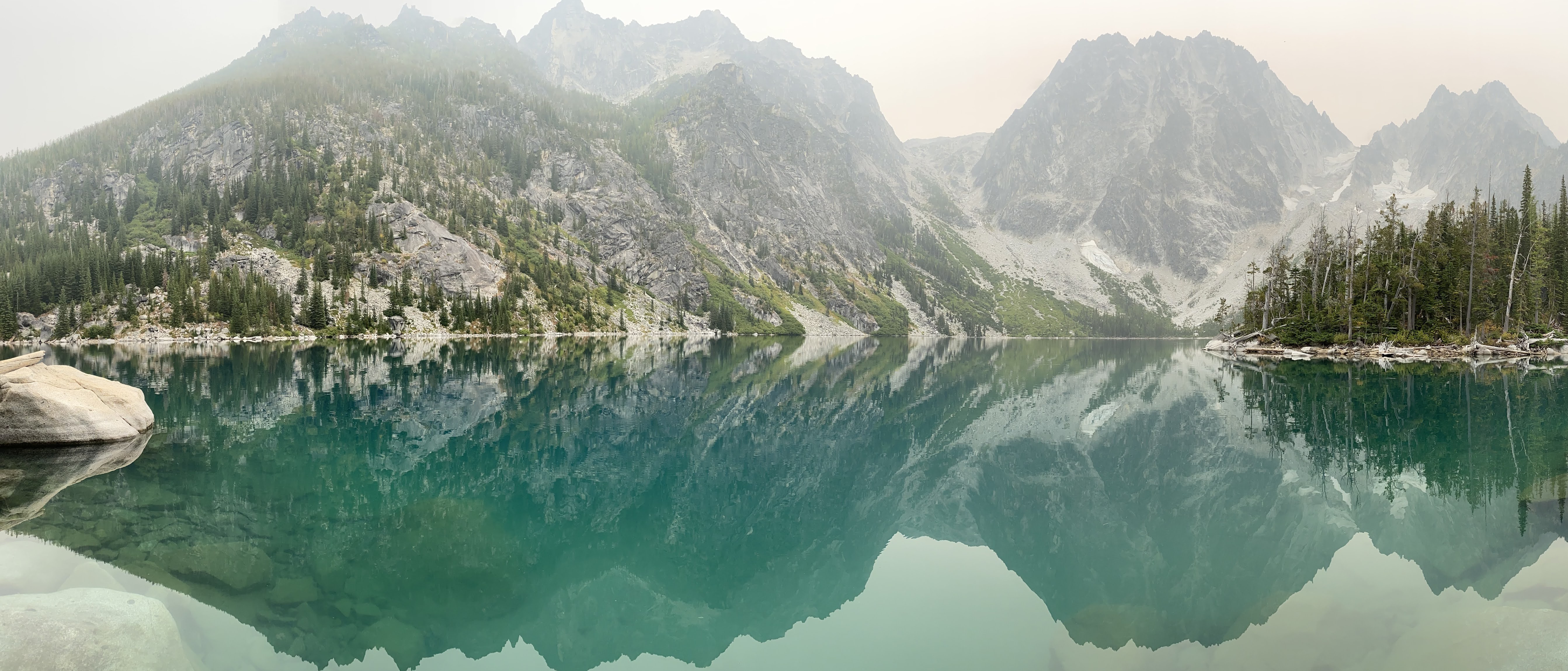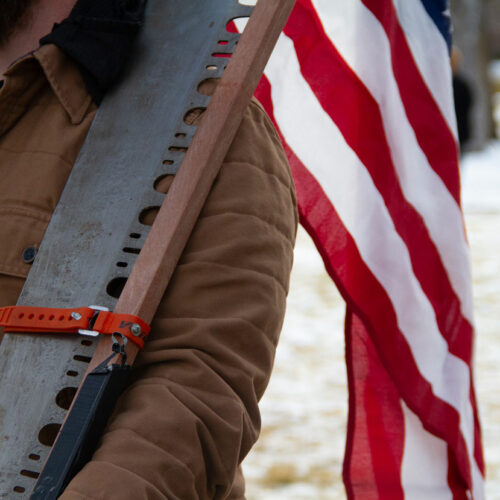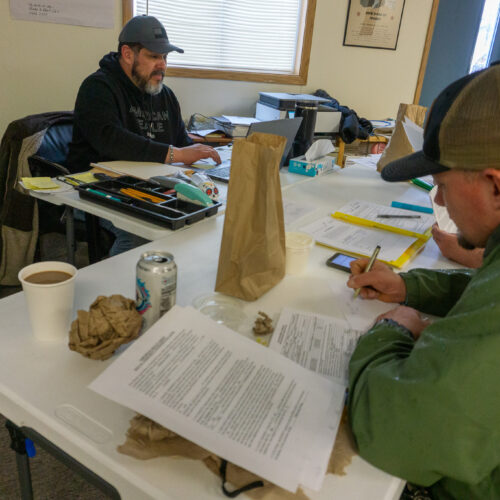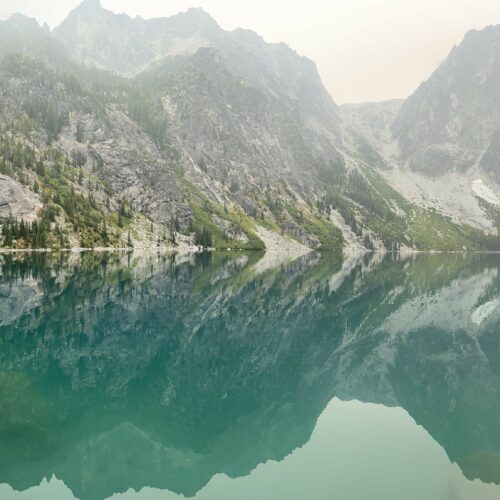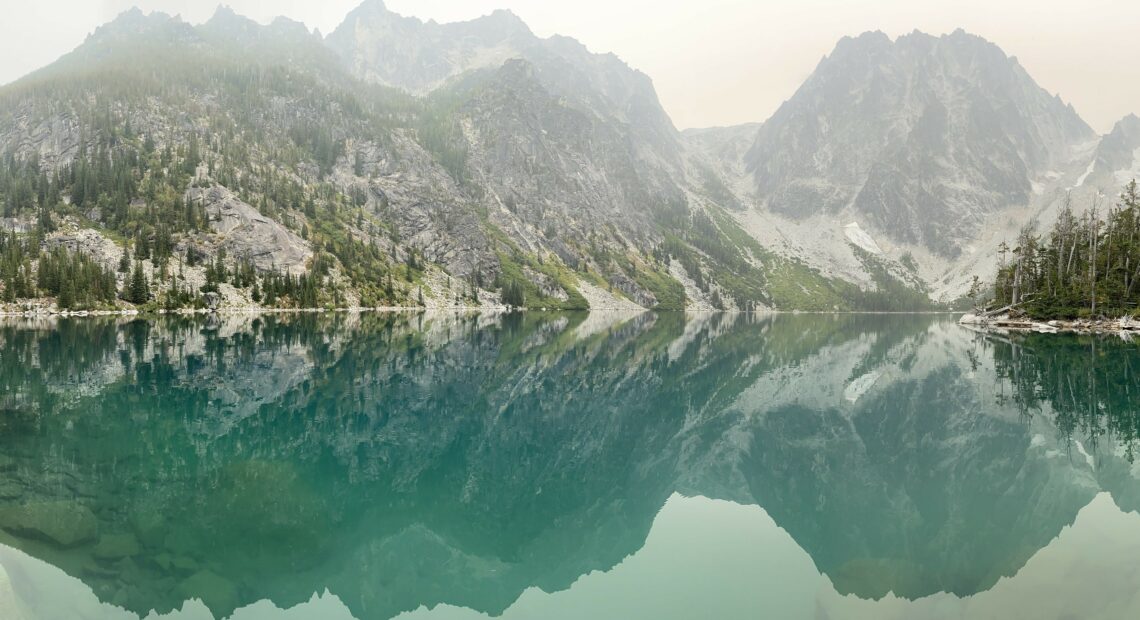
Trash piling up, wildfires too big to fight: What wild lands might look like without workers
Listen
(Runtime 1:00)
Read
Jaelle Downs was a wilderness ranger for the Cle Elum Ranger District in the Alpine Lakes Wilderness Area. Being out amongst the towering fir trees and turquoise lakes, living out of a backpack and taking care of Washington’s wild lands was her favorite part of the job, she said.
To make sure trails stay safe and open to the public, seasonal workers like Downs would clear logs that fell across the path, dig drains for excess water and maintain pit toilets.
“We do the hazard tree assessing, we pick up the trash and we maintain those sites throughout the summer,” she said.
Despite glowing reviews from her supervisor, Downs, and many of her coworkers and friends, were fired last week.
A letter was sent to Downs saying she was terminated because she had performed poorly, and her employment was “no longer in the public interest.”
“It was a pretty heartbreaking letter to read,” said Downs, who said she is trying to figure out how to fight for her job.
On Monday, Downs went to a protest where other employees who had been fired gathered with signs at Memorial Park in downtown Wenatchee.
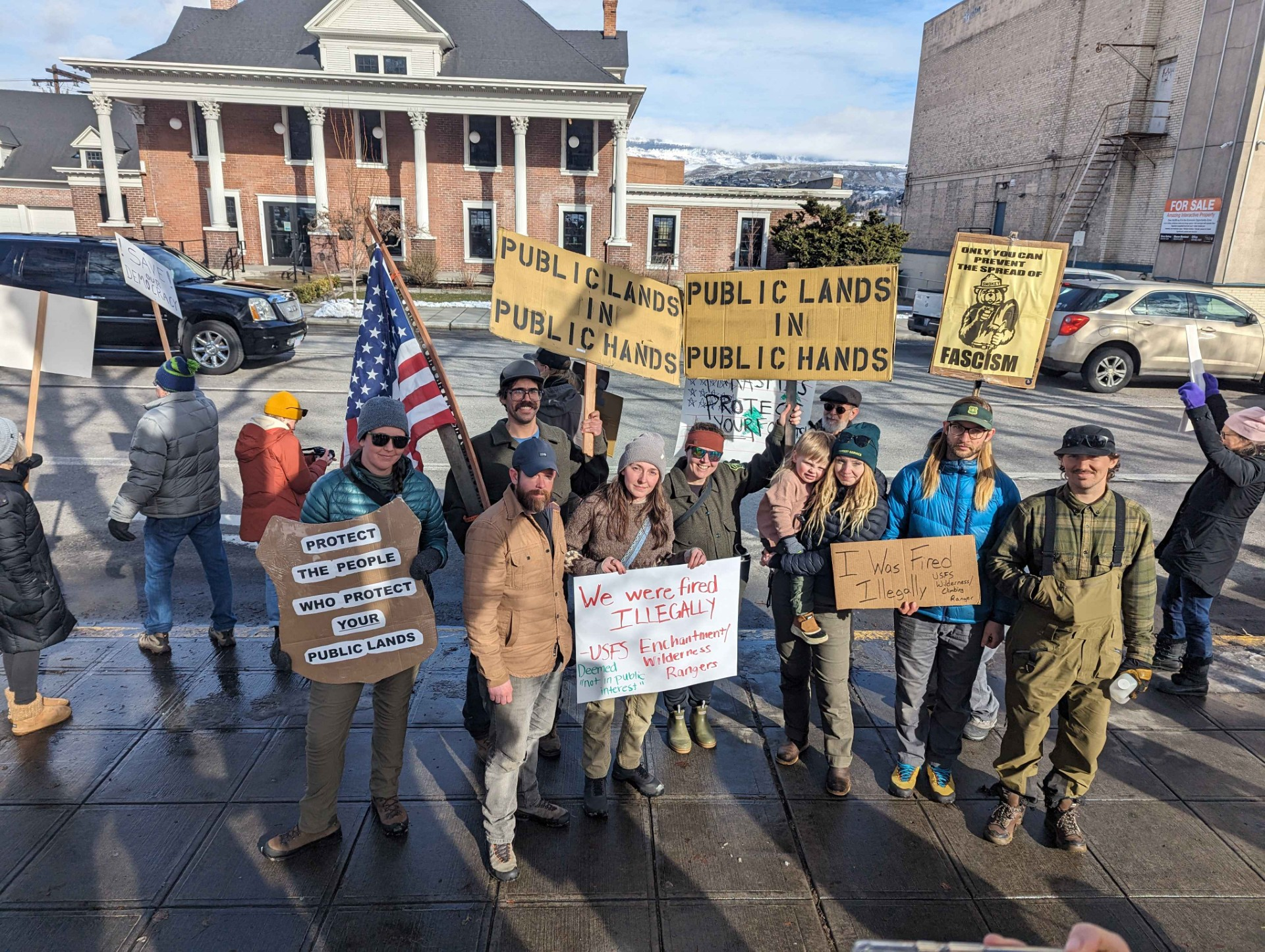
People fired from national forests across Washington hold signs while protesting in downtown Wenatchee on Monday. Jaelle Downs holds a sign that reads, “Protect the people who protect your public lands.” (Credit: R. Granberg)
People came from places like the Methow Valley Ranger District, the Naches Ranger District, and the Wenatchee River Ranger District, Downs said.
“We were all there standing and talking together about what happened to us and why we feel our work is so important,” she said. “We’re definitely fighting this.”
Without many of the seasonal workers the U.S. Forest Service relied on — like Downs — she worries wilderness toilets will be overflowing, trash will pile up and areas vulnerable to wildfires will not be cleaned up.
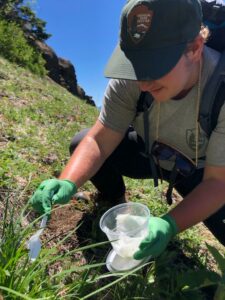
Maddi Bacon releases Oregon silverspot butterfly caterpillars at the Saddle Mountain State Natural Area in Oregon. (Credit: Maddi Bacon)
Many of the other workers who lost their jobs she has been talking to said their departments have been gutted, with almost no one left to do the work, Downs said.
“I think this is going to have an insanely big effect on recreation,” said Maddi Bacon, who has worked for the National Park Service for the past five years.
The U.S. Forest Service and the National Park Service are extremely reliant on a seasonal workforce, said Bacon, who has worked on trail crews, wildland fire teams and been a biological science technician.
They were gearing up for another season at the Lewis and Clark National Historical Park in Astoria, Oregon. But now, their job is stuck in limbo. They’re not hired, or fired.
A more dangerous fire season on the horizon
Many of the positions who support firefighting have been terminated, Bacon said.
“That’s logistics, that’s supply, the incident command teams, GIS, all of these other things that make wildland firefighting, like, able to happen, those people are losing those jobs,” they said.
This could mean a more dangerous fire season to come for both firefighters and the public, Bacon said.
Big fires, like the recent wildfires in California, require people behind the scenes to support people fighting the fires on the frontlines, said Chris Hertel, who worked for the U.S. Forest Service for 35 years. His last job was as a supervisor for the Grangeville Smokejumpers.
Before his retirement, Hertel worked as a smokejumper for 25 years. Smokejumpers are highly skilled firefighters who jump out of airplanes and use a parachute to reach fires in remote wilderness areas.
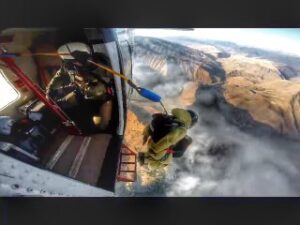
A smokejumper drops from a plane over a fire in the Payette National Forest. (Credit: Chris Hartel)
The rhetoric from the Trump administration about federal employees being lazy is insulting, Hertel said.
“To categorize me as being lazy, and put that label on my coworkers too, is humiliating and irritating,” he said.
The mass firings of federal employees are already having substantial effects in the small rural towns like Grangeville, Idaho, where the U.S. Forest Service is a major employer.
“Families are getting displaced, because a lot of the people who were fired were living in government housing,” he said.
If there is no one to clear hazardous trees from the trails, or fires are too dangerous, people may not have access to campgrounds in the forests, Hertel said, adding that many people take access to America’s millions of acres of wilderness for granted.
Because many of the people being terminated for poor performance have positive performance evaluation, Bacon thinks the firings might be illegal.
“I call my representatives every single day,” Bacon said. “I leave a message, or I talk to whoever answers the phone, asking for a response from the representatives and senators, asking what they’re doing to combat the hiring freeze and what they’re doing to stop these illegal mass terminations.”
This week, several unions representing federal workers filed a lawsuit against the Office of Personnel Management.
The unions argue OPM is lying about the performance of employees and committing massive employment fraud.

